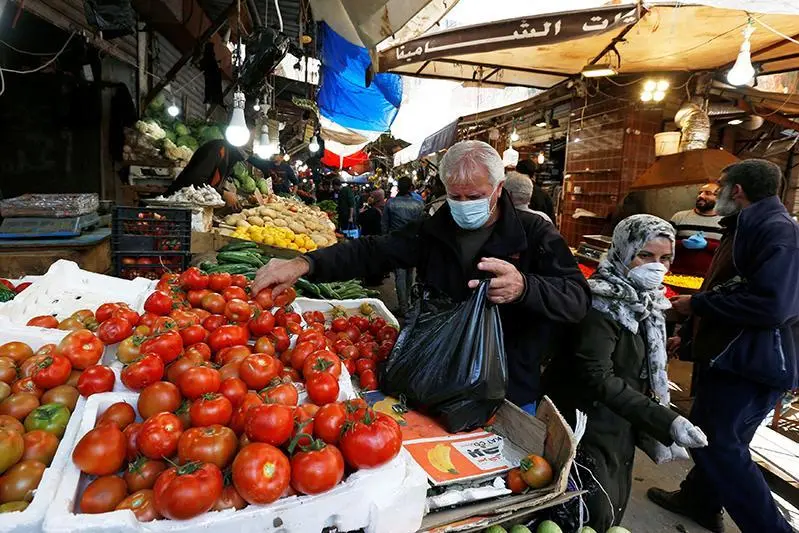PHOTO
AMMAN — Food prices in Jordan increased in February and March by 1 per cent and 0.7 per cent, respectively, according to the most recent food security update issued by the World Bank (WB) on April 20.
The report stated that domestic food inflation levels remain “high” in “almost” all countries around the world.
Information from between December 2022 and March 2023 for which food price inflation data are available shows… inflation levels greater than 5 per cent in 70.6 per cent of low-income countries, 90.9 per cent of lower-middle-income countries, and 87.0 per cent of upper-middle-income countries, the WB report said.
Among high-income countries, 84.2 per cent are also experiencing high levels of food price inflation, it continued, noting that “the most-affected countries are in Africa, North America, Latin America, South Asia, Europe and Central Asia”.
The WB’s food security update also cites a recent report issued by the Food and Agriculture Organisation (FAO), which shows that “the benchmark index of international food commodity prices declined for the 12th consecutive month in March 2023”.
“The FAO Food Price Index averaged 126.9 points in March 2023,” decreasing by 2.1 per cent compared to February 2023 and by 20.5 per cent compared to March 2022, the report stated.
According to the WB, the FAO’s index showed factors contributing to the decrease include “ample supplies, subdued import demand and extension of the Black Sea Grain Initiative”.
The WB’s food security update issued on March 23 noted that although the food price index in Jordan was 0.6 per cent lower in January 2023 compared to December 2022, “food insecurity continues to affect refugees in Jordan disproportionally”.
The World Food Program (WFP) Food Security Outcome Monitoring - Q2 2022 report shows that 58 per cent of refugee households in camps and 72 per cent in host communities are considered food insecure.
Commenting the WB’s findings, Director of the Phenix Centre for Economics and Informatics Studies, Ahmad Awad, noted that the high levels of inflation being experienced around the world are among the residual effects of the COVID-19 pandemic.
“The large influx of funds allocated to helping communities face the challenges that accompanied the pandemic led to an increase in government spending worldwide, and that fuelled inflation,” he told The Jordan Times.
Unprecedented supply-chain disruptions and the outbreak of the Russia-Ukraine war also contributed to global inflationary pressures and rising food prices, he added.
Awad also pointed out that in Jordan and worldwide, low-income and vulnerable groups are hit the hardest by inflation, which forces them to modify their consumption behaviour.
He referenced a study prepared by the National Aid Fund in cooperation with FAO for the last quarter of 2022, which revealed that 6 out of 10 families who receive aid from the fund either suffer from or are vulnerable to food insecurity.
Its findings showed that 73 per cent of families resorted to less desirable and cheaper food options to deal with food shortages, while 59 per cent of families borrowed foods from friends and family and 33 per cent of families reduced the size of meals, Al Mamlaka TV reported last week.
Awad added that global inflationary pressures also impacted other categories of society, such as lower-middle class households who don’t receive aid. These households experienced a marked decline in living standards and a “receding ability to enjoy their socioeconomic human rights”.
These findings require the government to consider adopting different social protection policies to combat poverty and alleviate food insecurity, he said.
The government’s current “targeted approach” primarily focuses on increasing the funding allocations for aid requirements, according to Awad.
However, a comprehensive approach to enhancing social protection measures includes reviewing national labour and wage policies as well as enhancing healthcare, education, housing and transportation services in addition to providing poverty aid, he noted.
© Copyright The Jordan Times. All rights reserved. Provided by SyndiGate Media Inc. (Syndigate.info).




















